It’s time to move away from albums, gigs and photos for a while and take a look at some of the music-themed books that have kept me sane on buses, trains and planes during 2015. By sheer chance, I’ve managed to pick out quite a nice variety of styles and themes, so the selection staggers from light-hearted memoirs through serious autobiography to high technology and serious crime (no, I don’t mean the new Coldplay album). So, as ever, in no particular order, here we go.
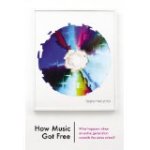 “How Music Got Free” – Stephen Witt
“How Music Got Free” – Stephen Witt
There’s a myth that’s been perpetuated about the origins of the current situation where we have a generation that won’t pay for music and a generation that doesn’t even recognise the concept of paying for music. What Stephen Witt’s book achieves is a comprehensive demolition of the myth that file-sharing came about because of some sort of people’s revolution where millions of like-minded people decided to share their digital music collections. This well-researched work picks out the various converging paths ultimately leading to the digital devaluation of music. The book explores the bureaucracy that bedevilled the adoption of a standard compression algorithm, the greed of the major music labels as they rushed into the highly lucrative CD market, the failure of the majors to react to the phenomenon of file compression (and increasing online transfer speeds which made sharing a viable proposition) and the outright criminality involved in stealing and counterfeiting masters from CD pressing plants. It’s a fascinating but ultimately depressing book.
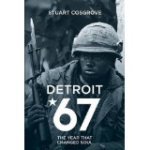 “Detroit 67: The Year that Changed Soul” – Stuart Cosgrove
“Detroit 67: The Year that Changed Soul” – Stuart Cosgrove
Stuart Cosgrove has picked out a pivotal year in the history of Motown and imposed a structure of a chapter per month (it works pretty well) which sets the upheavals at Motown against a backdrop of riots in Detriot, unrest in the police force and a general national malaise. Berry Gordy plays a central role in the well-known story of Diana Ross’s advancement at the expense of the other Supremes (and the expulsion of Florence Ballard), but Stuart Cosgrove delves deeper into the sickness at the heart of the company, dealing with the unease of major artists and the ultimate defection of the Holland/Dozier/Holland writing/production team. The book goes far beyond music biography by showing these events in the context of a city in meltdown with riots on either side of the racial divide and a brutal, corrupt police force fanning the flames. It’s a fascinating read, although there are far too many typos in the Kindle edition.
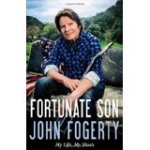 “Fortunate Son” – John Fogerty
“Fortunate Son” – John Fogerty
Confession time: the first song I performed in public was Creedence’s “Up Around the Bend” in a school band which included some good musicians and a future nuclear physicist, and me. I was a fan from an early age. “Fortunate Son” is John Fogerty’s attempt to put the record straight after accusations and counter-accusations, suits and counter-suits with his former band members Doug Clifford and Stu Cook. The book is unflinchingly honest throughout; John Fogerty isn’t trying a whitewash here. He owns up to his mistakes and errors of judgement and this gives him the right to expose others’ lies and hypocrisy. It’s difficult not to empathise with him in his battles with Saul Zaentz and the former Creedence members: he wrote the songs, after all. “Fortunate Son” pivots around John Fogerty’s meeting with his second wife, Julie, who brought order to his chaotic life and pushed him back towards popular and critical recognition. It’s good, it’s honest, it’s straightforward and it’s delivered in an authentic John Fogerty voice.
 “Unfaithful Music and Disappearing Ink” – Elvis Costello
“Unfaithful Music and Disappearing Ink” – Elvis Costello
Declan McManus has an awful lot of stories to tell and, not surprisingly, he has a gift for writing and storytelling. “Unfaithful Music…” is a cracking read, giving an insight into the creation of some wonderful music, and life in the music business bubble. The book doesn’t follow a straightforward chronological structure; it’s much more like a conversation in the pub with each observation triggering another digression. There are some difficult events to deal with (the Stephen Stills/Ray Charles incident for example) and they’re all dealt with in a very matter of fact way. The book skips over some big chunks of Elvis Costello’s life, but the ones he does tackle are done with honesty and candour. The names that crop up as the story unfolds are a history of popular music, but this never feels like name-dropping, they’re just people who happen to have been around at certain times. This is a wonderful book.
“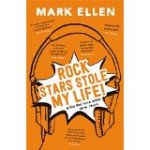 Rock Stars Stole My Life” – Mark Ellen
Rock Stars Stole My Life” – Mark Ellen
Mark Ellen’s memoir is a breezy and self-deprecating run through a life as a pop journalist, radio presenter, TV presenter and publisher. He gives an inside view on life at the NME in the seventies, The Old Grey Whistle Test and the Live Aid broadcast, all delivered in a jaunty style that’s very easy to read. He’s met and worked with some amazing people (again, it’s all matter-of-fact rather than name-dropping), but being a member of Ugly Rumours with Tony Blair takes some beating. Most of the book is fairly gentle humour, smiles rather than guffaws, but Mark Ellen saved the best for last. His account of the mayhem aboard Rihanna’s ill-conceived and farcical round-the-world-in-seven-days tour made me laugh out loud. The entire book’s funny, but this piece was hilarious.
If you don’t see anything you fancy there, Chrissie Hynde’s “Reckless” and Bob Harris’s “Still Whispering After All These Years” are both well-written and interesting biographies.
Oh, is it my turn for the albums? Ok, these five stood out way above the rest and they’re a pretty mixed bunch but I think that’s what Music Riot is all about. Have a listen to these if you can because there’s a lot of really good music here.
 When you’ve listened to a lot of blues and blues/rock (and believe me I have over the years), you understand how easy it is for even very good players and writers to slip into the blues clichés, lyrically and musically. Some writers understand that not every song has to be a twelve-bar blues with lyrics about bad booze and wanton women, and Aynsley Lister is one of those writers. His songs on “Home” are recognisably blues/rock but with a recognition that the genre has to move on lyrically and musically. On “Home”, there are songs about the state of the music business today, an elegy to an old friend, a couple of brilliant covers and a tribute to Gene Hunt. What more do you want? This is one of those albums that grabs you from the first listen and doesn’t let go.
When you’ve listened to a lot of blues and blues/rock (and believe me I have over the years), you understand how easy it is for even very good players and writers to slip into the blues clichés, lyrically and musically. Some writers understand that not every song has to be a twelve-bar blues with lyrics about bad booze and wanton women, and Aynsley Lister is one of those writers. His songs on “Home” are recognisably blues/rock but with a recognition that the genre has to move on lyrically and musically. On “Home”, there are songs about the state of the music business today, an elegy to an old friend, a couple of brilliant covers and a tribute to Gene Hunt. What more do you want? This is one of those albums that grabs you from the first listen and doesn’t let go.
“Wrote a Song for Everyone” – John Fogerty
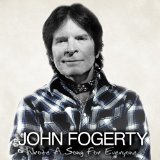 Ok, I’m going to admit to a slight bias here; I’ve been a fan of John Fogerty for much longer than I care to admit to. The first time I strapped on a guitar and played (badly) in front of an audience, the song the band played was the Creedence Clearwater Revival single, “Up Around the Bend”. I’m pleased to say that John Fogerty’s career as a performer has been much longer and more successful than mine.
Ok, I’m going to admit to a slight bias here; I’ve been a fan of John Fogerty for much longer than I care to admit to. The first time I strapped on a guitar and played (badly) in front of an audience, the song the band played was the Creedence Clearwater Revival single, “Up Around the Bend”. I’m pleased to say that John Fogerty’s career as a performer has been much longer and more successful than mine.
There are a couple of ways of looking at this album; you can see it as a cynical rehash of old material for a few quick bucks or you can see it as an opportunity to work with kindred spirits to put a twenty-first century polish on some classic twentieth century songs. You can probably guess which way I’m leaning on this one. If you only listen to one song on this album, listen to “Hot Rod Heart”; John Fogerty is joined by guitarist Brad Paisley and the final minute and a half of the song is the joyous and totally self-indulgent sound of two superb players having a great time trading guitar licks. If this doesn’t make you smile, you don’t like music. And that’s before we get on to the reworkings of the classic Creedence songs “Lodi”, “Long as I can see the Light”, “Who’ll Stop the Rain” and the less well-known “Wrote a Song for Everyone”. Oh, nearly forgot, “Proud Mary”. Superb from start to finish.
“The Dirt Tracks” – The Dirt Tracks
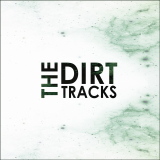 If you’re really into music, it doesn’t matter how much you’ve heard, you still love it when you hear something original and fresh (and I’ll be completely honest and say something that no-one else has written about yet). My epiphany this year was an invitation to see Spanish indie band The Dirt Tracks in central London. The audience was four people, and that included me and the band’s manager. It didn’t bother the band because they pulled out a storming set. I was given a copy of the band’s debut album and I promised to review it. When I listened to it, I was hooked.
If you’re really into music, it doesn’t matter how much you’ve heard, you still love it when you hear something original and fresh (and I’ll be completely honest and say something that no-one else has written about yet). My epiphany this year was an invitation to see Spanish indie band The Dirt Tracks in central London. The audience was four people, and that included me and the band’s manager. It didn’t bother the band because they pulled out a storming set. I was given a copy of the band’s debut album and I promised to review it. When I listened to it, I was hooked.
It’s heavily influenced by British indie, but there are elements of late ‘60s psychedelia in there as well as samples and a huge guitar attack. As if that wasn’t enough, the album includes the experimental single “Kaleidoscope” which combines two similar stand-alone songs across the stereo spectrum to create a third song. It’s quite a disorientating effect designed to demonstrate the difference between left- and right-brain processing and it’s even more impressive when you know that it’s written (like the rest of the album) in writer Santiago Coma’s second language. Very impressive debut album.
“Radio (in my) Head” – Various
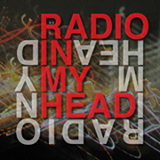 This one deserves a special mention for overcoming logistical difficulties; there are artists from 14 different countries on this collection of reworkings of Radiohead songs. There’s absolutely no filler on this album and there are a few absolute corkers. Some of the versions stay reasonably close to the Radiohead template, while The Stoneface Travellers and Yoya put their own stamp on “My Iron Lung” and “Wolf at the Door” respectively. The project was initiated by John O’Sullivan, MD of Bandhouse Records and pulled in contributions from his contemporaries at the London College of Contemporary Music (including Amy Hannam and Beth Mills, who you may have seen on X Factor)and and a few others picked up on the journey. Anyway, it’s a bostin’ album and you should all give it a listen.
This one deserves a special mention for overcoming logistical difficulties; there are artists from 14 different countries on this collection of reworkings of Radiohead songs. There’s absolutely no filler on this album and there are a few absolute corkers. Some of the versions stay reasonably close to the Radiohead template, while The Stoneface Travellers and Yoya put their own stamp on “My Iron Lung” and “Wolf at the Door” respectively. The project was initiated by John O’Sullivan, MD of Bandhouse Records and pulled in contributions from his contemporaries at the London College of Contemporary Music (including Amy Hannam and Beth Mills, who you may have seen on X Factor)and and a few others picked up on the journey. Anyway, it’s a bostin’ album and you should all give it a listen.
“Pale Green Ghosts” – John Grant
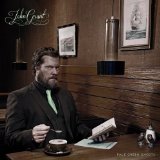 Our contributors at MusicRiot all have their own musical preferences and areas of expertise, but we’re all passionate about music and our paths tend to intersect fairly often; this is one of those cases. John Preston raved about this album several months before 6 Music latched on to John Grant and he was absolutely right; this is a great album. John Grant took a lot of flak over moving from acoustic instruments to electronic on this album (a nod to Dylan’s “Judas” moment there), but it’s still a classic singer-songwriter album. There are moments of humour, sneering, viciousness and painful emotional honesty on subjects as difficult as an HIV diagnosis. When it’s funny, it’s very funny, when it’s vicious, it’s very vicious and when it’s about honesty, it will make you cry. Even the remixes are worth a listen.
Our contributors at MusicRiot all have their own musical preferences and areas of expertise, but we’re all passionate about music and our paths tend to intersect fairly often; this is one of those cases. John Preston raved about this album several months before 6 Music latched on to John Grant and he was absolutely right; this is a great album. John Grant took a lot of flak over moving from acoustic instruments to electronic on this album (a nod to Dylan’s “Judas” moment there), but it’s still a classic singer-songwriter album. There are moments of humour, sneering, viciousness and painful emotional honesty on subjects as difficult as an HIV diagnosis. When it’s funny, it’s very funny, when it’s vicious, it’s very vicious and when it’s about honesty, it will make you cry. Even the remixes are worth a listen.
If you want to learn a bit more about these albums, you can search for the reviews on the site. Or you could give them a listen.


